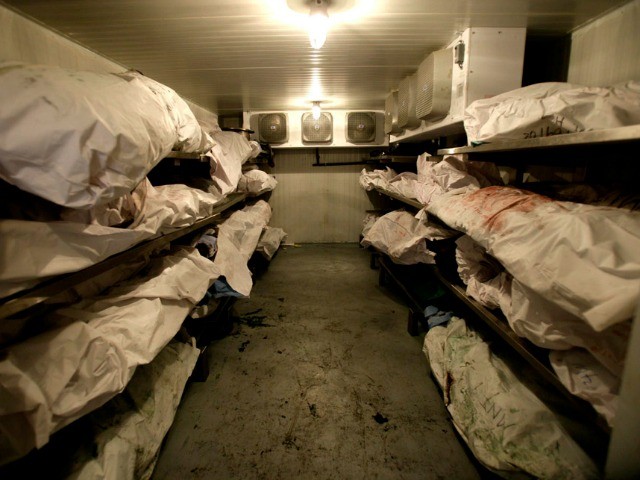
While President Enrique Peña Nieto’s campaign against violence is helping subdue crime in many parts of Mexico, the southwestern state of Michoacán, home to some of the most violent drug cartels in the nation, experienced a 55% spike in homicides in 2014.
A report in Spanish newspaper El País cites new statistics from Mexico’s National Public Safety System that expose the dangerous state of affairs in a province marred by its attractiveness to large drug cartels and propensity for inter-cartel wars that often impact the lives of civilians. Michoacán police registered 272 homicides between January and March 2014; only 175 homicides occurred during those same months in 2013. The new statistics are part of a growing trend: Michoacán registered 162 homicides during the first three months of 2012, and only 152 homicides in the equivalent period of 2008.
Michoacán has also suffered a significant increase in other crimes. As El País notes, the state also saw an increase in armed robberies, kidnappings, and incidents of rape. Rape reports were up almost 30% this year, from 84 reports of incidents in the first three months of 2013 to 108 this year.
The statistics from other areas of Mexico proves that Michoacán is facing a unique problem. On a national level, homicides dropped 12% during the first three months of the year. There are currently 4,047 homicides on the record for 2014; this time last year, Mexico had registered 4,610. Of those 4,610, 961 were in Michoacán.
The higher homicide rate comes as a surprise to some, as the Mexican government made gigantic strides in the war on drug cartels during the first quarter of the year. In February, Mexican officials arrested Joaquín ‘El Chapo’ Guzmán, the head of the notorious Sinaloa cartel and one of the most dangerous and elusive drug lords in Latin America. Guzmán had risen from the ashes of the Guadalajara cartel of the 1980s to become the leader of his own organization of drug traffickers, a group that had caused mayhem for decades in southwestern Mexico.
The arrest of El Chapo was not enough, however, and the rise in drug-related violence in Michoacán proved just how sophisticated drug cartel operations can be. This week, Mexican officials announced a mass arrest of more than one hundred drug-affiliated criminals in the state–all posing as anti-drug cartel vigilantes. The Mexican government’s inability to reach the most remote areas of the state, controlled by violent organized crime groups, has resulted in a counter-offensive by armed civilians, particularly against the large Knights Templar drug cartel.
The AFP notes that senior federal official Alfredo Castillo explained that police had had their suspicions of these groups for some time, but could not find infiltrated organized crime members until now: “The suspected criminals clearly covered their activities by posing as members of the self-defense groups in that town, wearing white shirts with the words ‘Free Huetamo’ and ‘Self-Defense Group.'”
Despite the tragic news from Sinaloa, many are optimistic that this time, the increase in homicides is a product of a significant diminishing of the power of the Knights Templar, coupled with the fall of El Chapo–a last gasp of the old order. That is not to say that the end of the Knights Templar would signify and end to the power of organized crime in the region. In Forbes, Tristan Reed explains: “the massive losses for the Knights Templar in such a short period will likely trigger substantial shifts in organized crime dynamics in Michoacan, including the expansion of old or the creation of new, smaller criminal groups into the void left by the Knights Templar.”

COMMENTS
Please let us know if you're having issues with commenting.